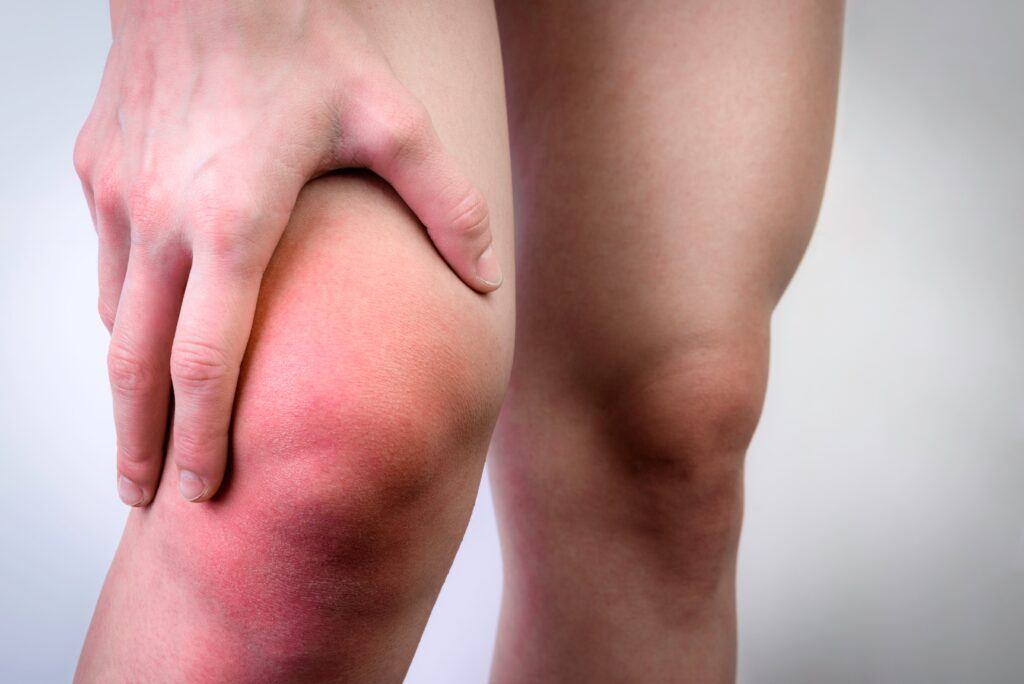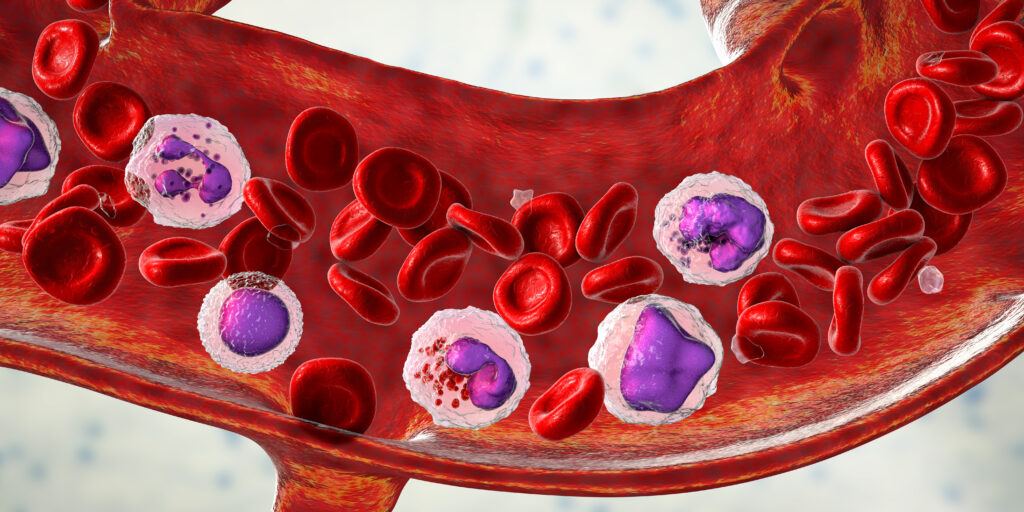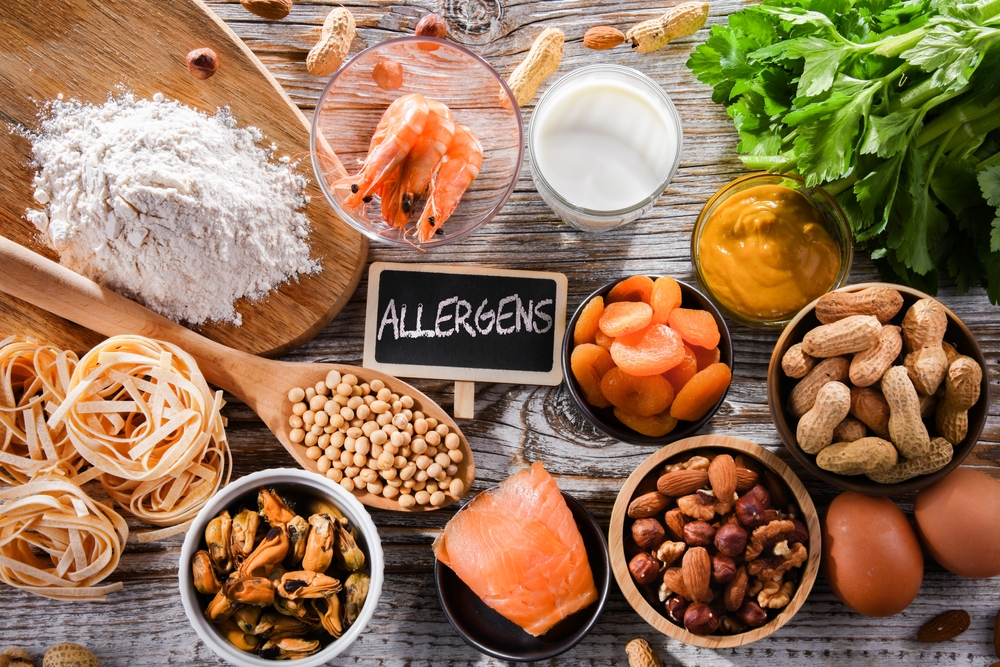
If you are worried that inflammation may be at the root of your health problems and weight gain, read on to explore what inflammation is and what it does to your body. In this article I will explore, what are common causes of inflammation? can inflammation cause weight gain? and how to remove inflammation from your body? At the end I will also list 16 ways to reduce inflammation in the body.
A Popular Health Concern
The issue of inflammatory processes in the body that lead to chronic diseases and ill health have been making the headlines and become a topic of interest for scientists and researchers in public health and preventative medicine. More people in the general population are also curious about how it impacts their health and how to prevent it (WHO).
So, What Is Inflammation?

According to scientists, inflammation is a process that occurs primarily at the cellular level of your body. It is usually a natural response to threats from substances and trauma that injure body tissues and place you at risk of disease and death. However, this process sometimes overwhelms the body and harms rather than heal and protect the body (Cleveland Clinic).
Is inflammation always a bad thing? What Is An Example Of Inflammation?
The site, extent, and duration of exposure to a noxious stimuli may lead to the inflammatory process becoming a source of danger, disease, and death.

For example, pneumonia may occur when bacteria, virus (Lancet 2011) and even food stuff gets into the lungs. The body produces extra mucus and white cells in the lungs to help fight the infection or otherwise get rid of the foreign substance and the toxins (waste products produced by bacteria, fungi, or viruses). However, this may overwhelm the lung, filling up the air spaces needed for gaseous exchange that is vital for life. This causes consolidation (the air spaces are filled with fluid and white cells and appear on x-ray to be solid tissue) and cell damage and destruction in the lung.
Is Inflammation Ever A Good Thing?

During inflammation the body dilate blood vessels to support the rapid movement of fluids, white cells, antibodies, platelets, and other substances, to the site of injury to repair and protect the body. White cells such as macrophages usually surround and absorb foreign substances and bacteria that seem to pose a threat to the body. While platelets and fibrin start sticking together to start the process of repair to injured tissue, similar to scab formation .
“More often than not inflammation is
normal and protective and usually localized
in a confined region the body“
That is why cuts and bruises get red and swollen as the capillaries (small blood vessels) dilate and fluids and cells are quickly carried to the injured tissue to start the process of inflammation and repair. So, inflammation is not always a bad thing. The type of inflammation frequently discussed and described in news and online media is chronic systemic (or long-term duration of more than 1-2 years) inflammation that has more subtle signs and symptoms. It is this of type of chronic inflammation I will be exploring and explaining in the rest of this article.
What Are Common Causes Of Inflammation?

Causes of inflammation, both acute (short duration) and chronic are many and varied. Common causes of chronic inflammation includes: Toxins such as mold, household chemical, fumes and other air pollutants, herbicides and pesticide and other chemicals in food products and personal care products, allergens and even foods to which your body has a sensitivity, low level (or subclinical infections), vitamin and mineral deficiencies, free radicals, cigarette smoking and alcohol intake all results in changes in your body as it responds to these various stimuli (NCBI 2023) .
How Do You Know If You Have Chronic Inflammation In Your Body?
The main symptom of chronic inflammation is pain, eg, abdominal pain, joint pain and headaches, other signs and symptoms include heat, fever, skin problems such as rashes, mucus production, redness, swelling, abdominal bloating and gastrointestinal upset, seasonal problems such as hay fever, hormonal problems, constipation and diarrhea, unintentional weight changes, poor concentration, anxiety, insomnia and neurological symptoms.

Investigations such a blood tests for white cell count, antibodies, and homocysteine levels may also show raised levels of these bio-markers in the blood, confirming the presence of oxidative stress, infection or inflammation or both.
Using The Process Of Elimination
If you experience bloating, gas or postnatal mucus dripping after eating certain foods don’t ignore it. Your body is telling you something. And you should pay attention. Eliminate this offensive food or drink or whatever it is and observe whether you experience an improvement of your symptoms. If reintroducing the product causes your symptoms to return, you would do well to avoid the stimuli in future. This method is the best method for identifying the cause of the problem as many tests, for example tests for celiac and gluten sensitivity are not really reliable.
Can Inflammation Be Causing Your Weight Gain Or Sabotaging Your Efforts To Lose Weight?
Well in simple terms, yes! Chronic inflammation may well be the cause of your stubborn overweight problem (Journal of Clinical Investigation 2018). Inflammation increases swelling and water retention as well as hormonal chemical processes that slows metabolism and effective cell to cell communication.

This is especially true when your body doesn’t get enough vitamin C and minerals to support tissue strength and repair. While vitamin C helps fight infections it is necessary (together with protein) for the production of collagen for strong connective tissues in your skin, bones and muscles.
Minerals help with the production of enzymes for proper break down and digestion and assimilation of food. Without adequate intake of essential (meaning they need to be taken daily as the body does not produce or store them) vitamins and minerals, foods are not properly broken down and may even pass into the blood stream (partially digested) resulting in the body seeing it as foreign matter to be targeted.
Could Your Foods And Household Products Be Causing Skin And Respiratory Problems Too? Are There Items In Your Home And Pantry That Is Causing Inflammation?
One of the main foods that result in inflammation and sensitivity is gluten. Other foods include peanuts, other nuts, dairy products, charred foods, sesame seeds and over processed foods (where the fiber is removed and the cooking method and preparation includes exposure to high heat over an extended time), concentrated proteins that is extracted from its natural source (example texturized vegetable protein) such as from soya, wheat and pea.

What Are Alternatives To Harsh Chemicals That Act As Environmental Sources Of Antigens and Allergens
Finding the alternatives really means understanding the cause-and-effect nature of healthy living and selfcare in order to live a preventative lifestyle. Seeking to live in a clean, well-ventilated home, with plenty of sunlight, away from fumes from vehicular traffic, choosing personal care and household products that are free of harsh chemicals and paying attention to mild symptoms that keeps happening whenever you have a certain food or drink or are exposed to certain seemingly safe and natural items that may be a part of your personal care routine. For example, feeling bloated after eating a nice piece of toast or having constipation the day after eating your mac and cheese dinner. These symptoms should not be ignored when a pattern has emerged.
Avoiding triggers and sensitizing Foods and Substances
Try to use a process of elimination to find out what the offensive stimuli might be. Mild sensitivities that are not heeded could overtime cause serious disease. This is because repeated exposure to triggers that stimulate an immune reaction overtime may result in the immune system attacking your own body. In turn this leads to inflammation, autoimmune disease and other chronic diseases including cancer, diabetes, rheumatoid arthritis and cardiovascular disease.

There are many products that are certified hypoallergenic, organic, and free from many of the harmful everyday products that we don’t know are undermining our health and the health of our families. Seek out those ethical companies that provide alternatives to harmful chemical laden everyday products.
How To Remove Inflammation From Your Body?
By supporting the processes of elimination such as defecation, urination, exhalation (part of the respiratory process) and perspiration you can start reducing inflammation in the body. This requires good hydration, exercise and use of warm baths or a sauna to help improve circulation and excretion. It is also important to keep up with medical appointments and treatment if you are under medical treatment for any diseases.
Your diet is also one of the ways that you can support your body to reduce inflammation by consuming more plant-based foods that are taken raw and in their natural state. Some foods contain natural enzymes that break down protein and reduce inflammation. One example is pineapple which contains bromelain which is a natural proteolytic enzyme. Lemon or lime juice and apple cider added to water, drinks and foods, is another way to increase enzyme action and promote reduction of inflammation (Harvard.edu 2021).

How Food Preparation And Cooking Methods May Help Or Hinder Healing
Cooking our foods make them easier to digest, however the body identifies cooked foods as a foreign substance while it does not respond to raw foods in this way. And having raw foods at the start of your meals also reduces the response of the body to the rest of your meal even when it is a cooked meal. Cooked seeds and plants can never grow and have less live giving properties than raw foods. So more raw foods, fruits and vegetables are needed to have a balanced intake of foods that promote health and healing (Harvard.edu).
Another high quality support you can use is high polyphenol content olive oil. The best way to have the benefits of extra virgin olive oil or high polyphenol content olive oil is to have it daily on you foods such as on toast, baked potatoes and in salad dressing. Do not cook/heat it as many vital healing properties will be lost.
Summary And Conclusion
In summary, inflammation is not always a bad thing, in fact it is the process by which the body mounts an immune response and starts the process of repair to damaged tissue. However chronic exposure to substances that stimulate this process may lead to cell and tissue damage as a result of prolonged inflammatory processes.
Sixteen Ways To Reduce Inflammation
- Avoid and remove environmental substances, foods and products that cause any kind of unpleasant reactions such as gas and bloating, constipation and diarrhea, even if mild.
- Have more raw foods by incorporating more fresh salads in you daily diet.
- Have raw extra virgin high polyphenol olive oil.
- Have lemon juice or lime juice in your water, drinks or foods.
- Use plenty of water internally and externally to support good elimination.
- Use the sauna or hot baths (at safe temperatures) to support perspiration.
- Get your body assessed for vitamin and mineral deficiencies and ensure you reverse them with good quality food supplements.
- Keep your home well ventilated, well lit and free of mold, dust and fumes.
- Take foods with natural proteolytic enzymes such as pineapples and lemon.
- Quit smoking and drinking alcohol to allow your body to heal.
- Add apple cider vinegar to your salad dressing.
- Use hypoallergenic products that only use safe and natural sources from ethical companies.
- Avoid vehicular fumes by closing car window and using the AC when in congested traffic. if you are riding a bike ensure you wear an appropriate protective mask to filter these fumes.
- Buy organic foods, but still wash thoroughly before consuming.
- If you have diabetes ensure you keep good control of your blood sugar and never ignore a cut or any signs of an infection.
- Reduce the use of simple sugars and other purified, isolates such a protein isolates and other highly processed foods that burden your digestive system and disrupts metabolism

Great content, very in-depth, and informative. My wife suffers from most of the symptoms you describe. I will discuss ways to lower her inflammation with her. Thank you.
MikeJ7
Hi Mike,
many thanks for taking the time to read and respond, letting me know that this content is useful to you and yours. If there are any other health topics you would like to see here please do let me know. I would be very happy to research and discuss/write about it here.
Best wishes,
Brenda